Improving healthcare workflow is challenging without the right tools. As hospitals and clinics grow, processes become more complex and may lead to non-compliance with healthcare standards. Many providers are turning to automated workflow management software to tackle this problem.
Here are the best platforms for improving workflow in healthcare.
5 Best Healthcare Workflow Optimization Software
Do you want to automate complex workflows in your organization and improve productivity? Consider simplifying workflow management in healthcare using these HIPAA-compliant software:
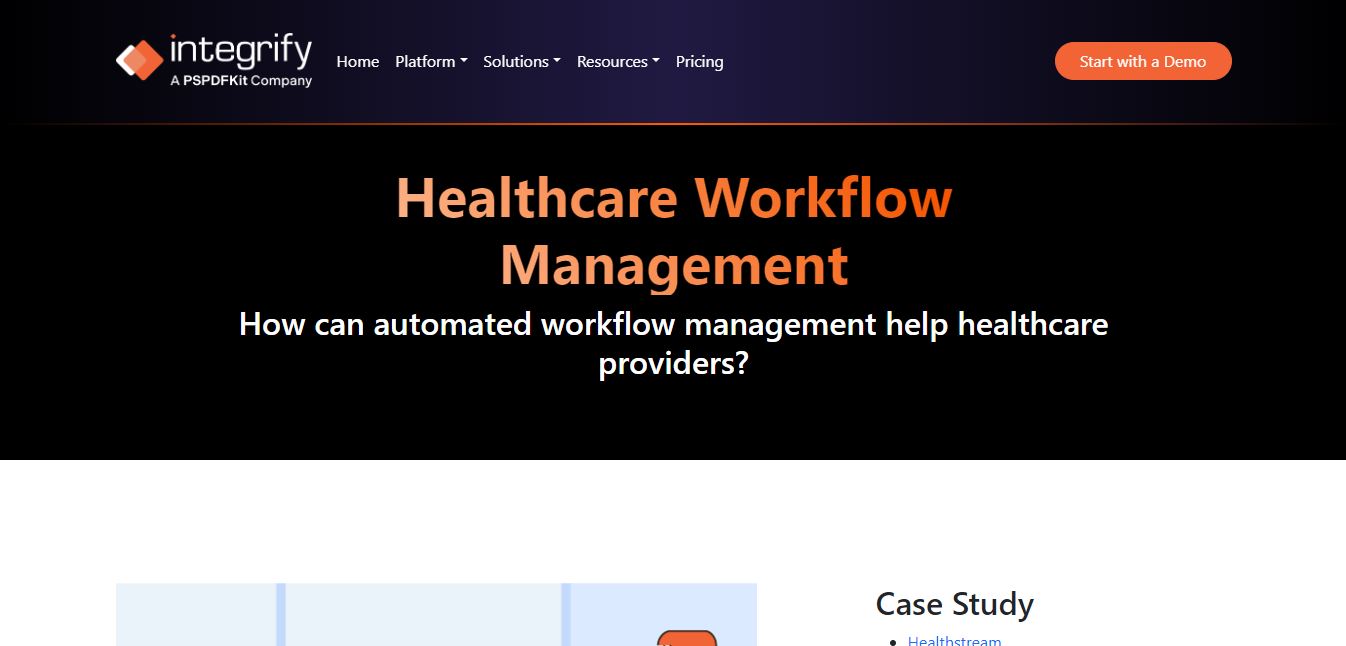
1. Integrify
Integrify is a user-friendly web-based platform that lets you build custom workflows. It is simple and highly adaptable, helping you track each project’s progress, generate custom reports, and create and manage tasks from one portal. Best of all, it offers a REST API for easy and fast integrations with other third-party apps.
Features:
- Automate the incident management process
- Simplify CapEx approval process with KPI tracking, live calculations, forecasting reports, and more
- Build your own employee self-service portal with HTML widgets and company-branded interface
- Automate employee onboarding, offboarding, performance reviews, and travel/vacation requests
- Design product development workflows using drag-and-drop
- Set alerts and reminders for projects
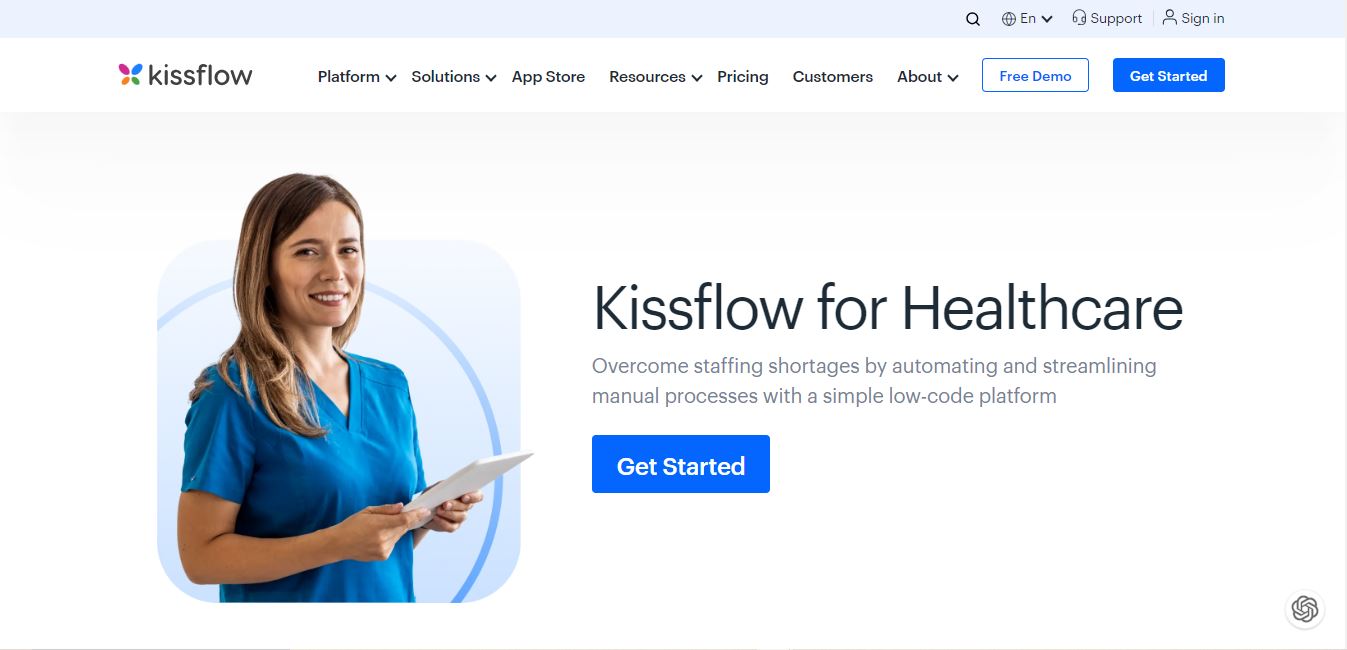
2. Kissflow
Kissflow is a trusted healthcare workflow management platform. Like Integrify it allows you to customize your workflows and improve patient care. A low-code and flexible platform, Kissflow lets you build patient, doctor, pharmacy, and laboratory management workflows.
Features:
- Compatible with other healthcare apps, including EHR systems, billing, and third-party apps
- Develop low-code and no-code apps
- Automate emails
- Collect and record patients’ medical records
- Configure rule-based workflows
- Manage doctor onboarding, staff shifts, and leave requests
- Use AI algorithms to analyze data
- Manage your inventory and vendors
- Allow patients to schedule appointments and upload and retrieve medical information
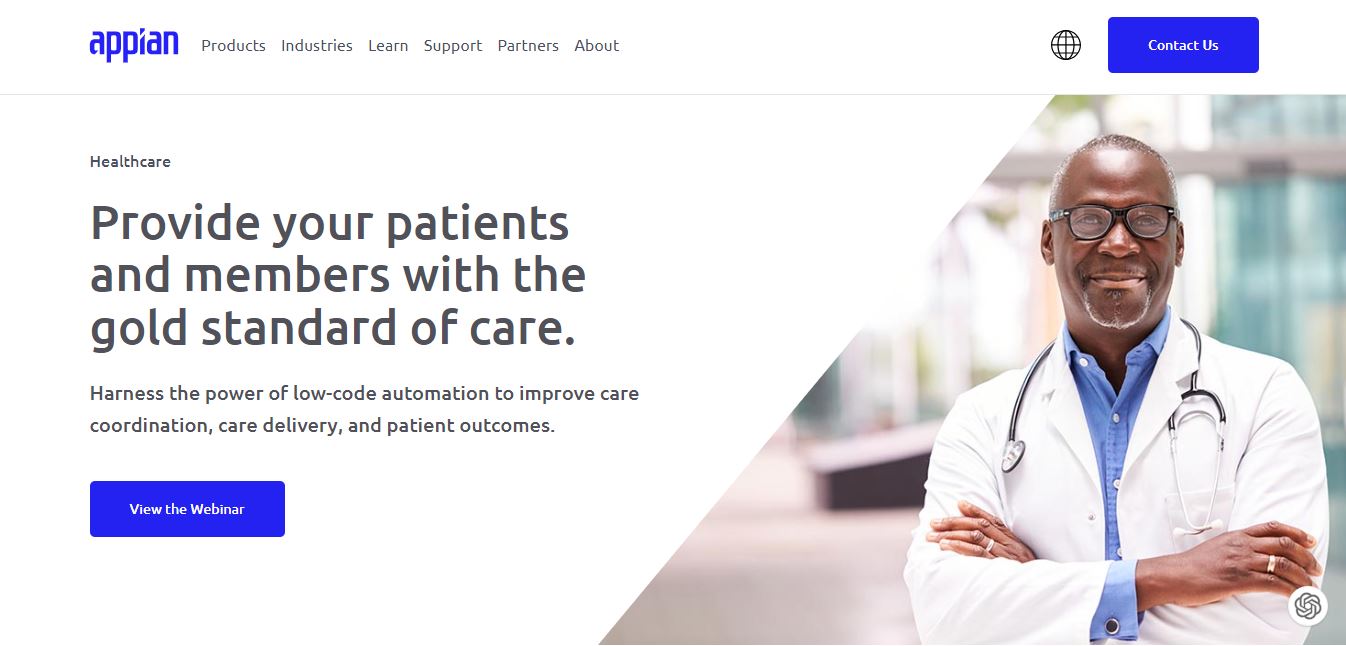
3. Appian
Appian is a trusted workflow management platform. Public institutions and global healthcare leaders use the software to improve productivity, unify data, and reduce app development time. It offers a user-friendly dashboard and automates the most complex processes.
Features:
- Uses secure AI to automate processes faster
- Extract data from tables and checkboxes
- Create data analytics reports and sync the 4 million rows of data
- Build no-code apps
- Integrates with EMRs, scheduling apps, and emergency alert systems
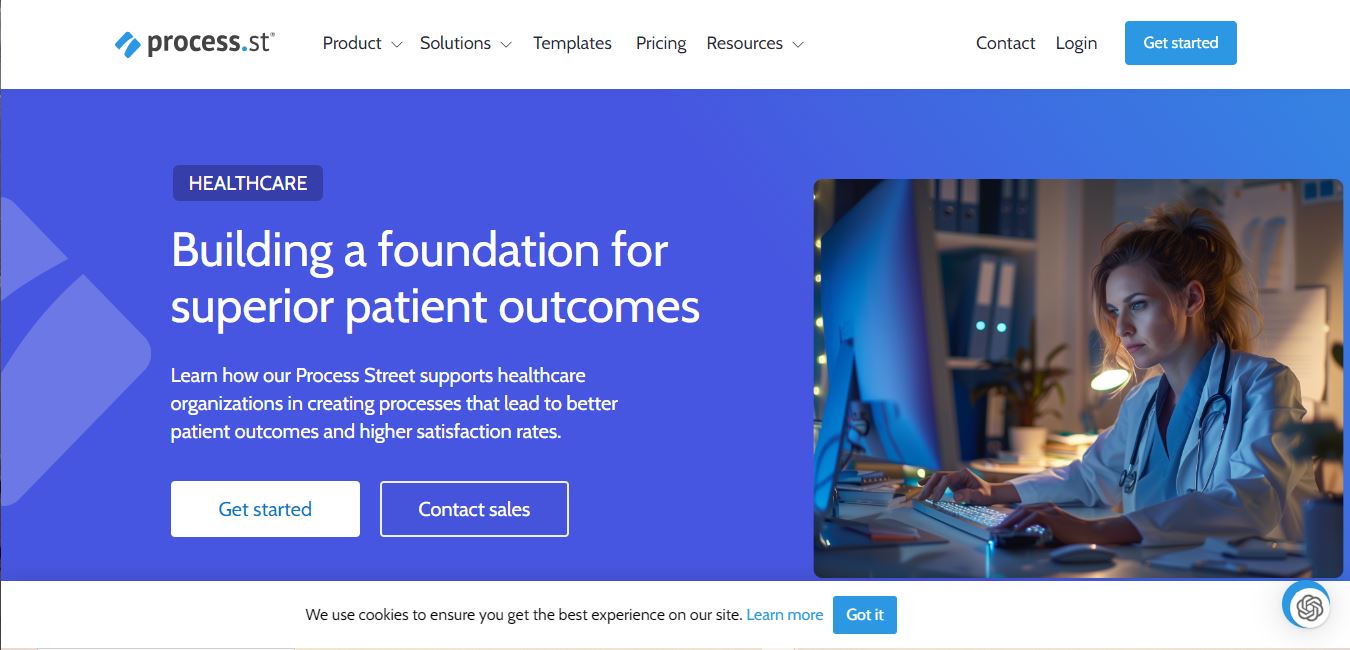
4. Process Street
A cloud-based healthcare workflow software, Process Street offers a HIPAA-compliant Enterprise plan. It uses conditional logic to help you build efficient workflows and improve compliance. With Process Street, you can control who sees sensitive data, create helpful guides, and assign roles to the right staff.
Features:
- Schedule and assign tasks to staff members
- Create easy-to-follow guides for various workflows, including IT service requests, onboarding, and lead management
- Create “stops” in between tasks to ensure that previous steps are completed first
- Connects with popular apps like DocuSign, Zapier, Google Workspace, Slack, and Jira
- Customize branding
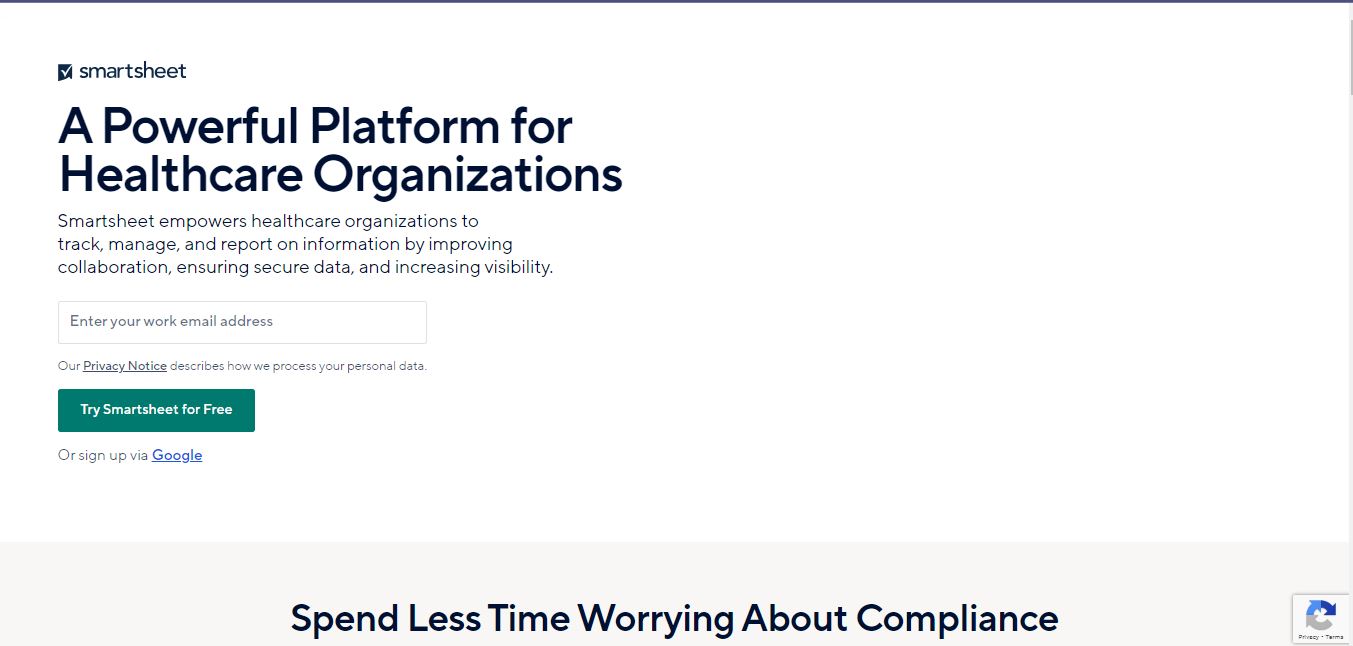
5. Smartsheet
Smartsheet allows you to manage projects and automate workflows using a powerful and user-friendly platform. You can use ready-made templates or design your own, automatically generate documents, assign people in an automated workflow, and configure alerts and requests.
Features:
- Create no-code workflows similar to flow charts
- Use workflow templates
- Generate PDFs
- Each workflow sheet can have up to 150 workflows
- Analyze AI-generated charts and metrics
- Integrates with DocuSign, Office 365, Google Workspace, Slack and other apps
- Each workflow can have up to 100 trigger, condition, and action blocks
Importance Of Optimizing Healthcare Workflows
Healthcare organizations should look into optimizing workflows to improve patient care and reduce medical errors. Complicated and disorganized workflows can lead to wrong diagnoses, poor documentation, and delays in medical care. Fortunately, digital technology and AI allow healthcare providers to automate certain workflows to improve efficiency.
Here are some repetitive tasks you can automate using any of the best software we listed above:
- Online appointment scheduling
- Patient intake and discharge process
- Health records management
- Patient-provider communication
- Staff and doctor onboarding and offboarding
- Staff activities and assignments
- Insurance claim processes
- Laboratory and radiology requests
Implement Healthcare Workflow Solutions
Workflow automation is a convenient solution to the challenges of modern healthcare. It allows hospitals, clinics, and individual healthcare providers to serve growing patient populations efficiently while keeping costs down. It also lessens the need to employ numerous staff to accomplish specific tasks. You only need one reliable, secure software.
Furthermore, healthcare providers have specific needs that are not typically found in other industries. For instance, they must comply with HIPAA rules and regulations and go the extra mile to protect protected health information (PHI).
HIPAA-compliant healthcare workflow solutions help providers maintain the privacy and confidentiality of sensitive medical data, avoiding the legal consequences of a data breach.







